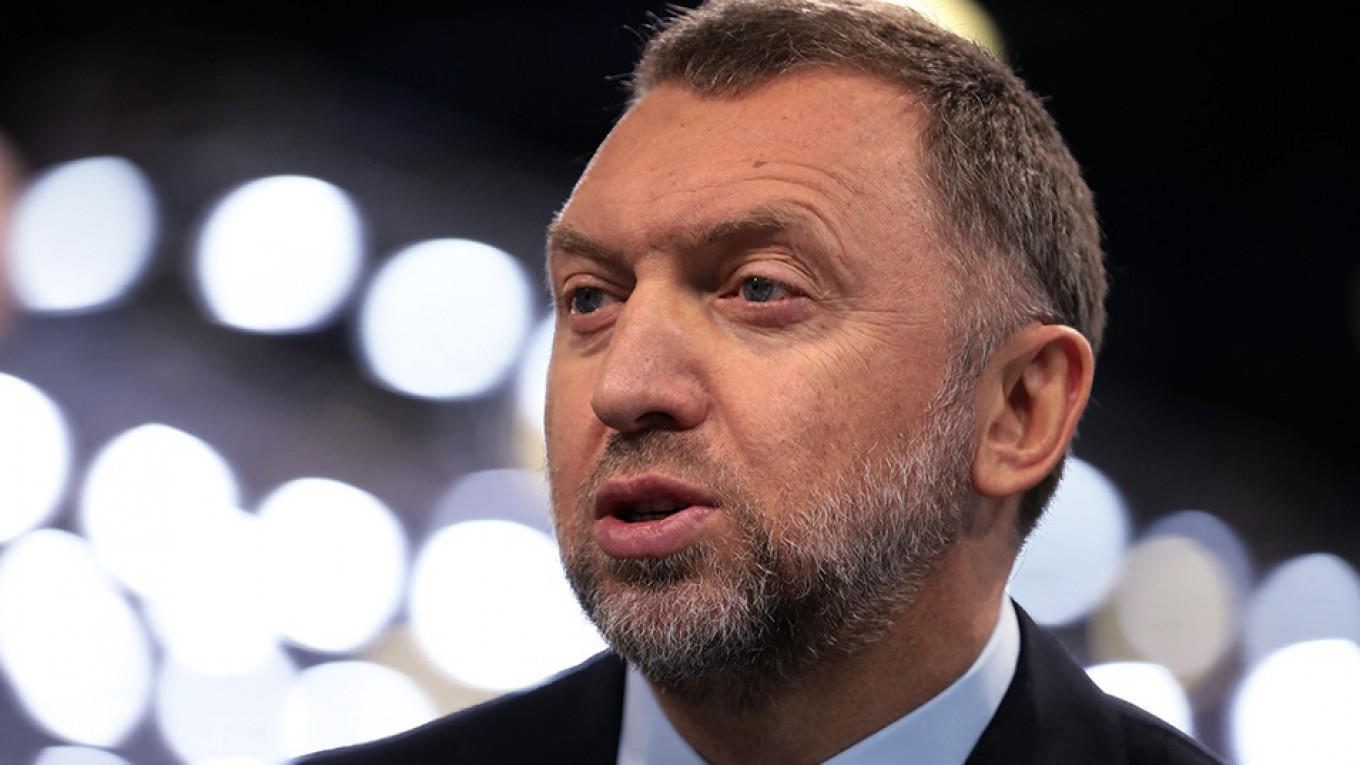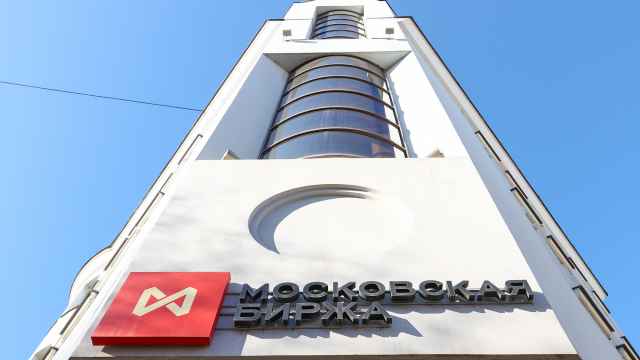The Senate advanced a resolution to block the Treasury Department from lifting sanctions on three Russian companies linked to oligarch Oleg Deripaska, with 11 Republicans aiding Democrats in a rare split with President Donald Trump.
The 57-42 vote to take up the measure Tuesday came shortly after Treasury Secretary Steven Mnuchin lobbied GOP senators at the Capitol and indicated he’s not backing down from his plan to lift sanctions against three companies Deripaska controls: United Co. Rusal, En+ Group Plc and EuroSibEnergo JSC.
“We have great responsibility in managing sanctions programs all over the world and we take those responsibilities very seriously,” Mnuchin told reporters after he met privately with Senate Republicans.
Democrats are questioning the administration’s motives at a time when Special Counsel Robert Mueller is continuing his investigation of Russian interference in the 2016 presidential election and possible connections to Trump’s campaign. Still, the measure has a difficult road ahead because Trump could veto it if both chambers were to pass it.
Senate Minority Leader Chuck Schumer of New York, sponsor of the measure, S.J. Res. 2, said Deripaska has close ties to Russian President Vladimir Putin and was a client of former Trump campaign manager Paul Manafort. Sanctions shouldn’t be removed from companies Deripaska partly owns while the Mueller probe continues, Schumer said on the Senate floor.
“The Senate must consider that Deripaska has deep ties to President Putin and his intelligence apparatus, organized crime and Mr. Paul Manafort, the subject of the special counsel’s investigation,” Schumer said. “It is deeply suspect that the Donald Trump administration would propose relief before he finished his work.”
Senate Majority Leader Mitch McConnell dismissed the resolution as a “political stunt” and said the Senate has long adopted tough policies against the Kremlin.
Mnuchin’s plan, announced Dec. 19, would keep intact earlier U.S. sanctions against Deripaska himself, but the Treasury Department has decided to remove financial restrictions on the three companies following an agreement to significantly reduce the oligarch’s ownership stake. Aluminum producer Rusal is among the largest companies the U.S. has ever put on its sanctions designation list, and the action caused its shares to plummet.
The resolution gave Schumer, as minority leader, a rare chance to take control of the Senate agenda and force Republicans to take a stand against the administration or side with Treasury’s controversial decision. He’s drawing on a 2017 sanctions law that lets him force a Senate vote disapproving of sanctions relief within 30 days after such an action. Schumer said the 30 days expire Thursday.
Republicans control the Senate 53-47, which meant Democrats needed Republican support to get the minimum 51 votes needed to advance the resolution. Republicans voting to move the measure forward included Tom Cotton of Arkansas, Jerry Moran of Kansas, Cory Gardner of Colorado and Susan Collins of Maine.
A bigger challenge looms later this week, when support from 60 senators will be needed to move the measure to a final vote. Trump could veto the bill if the House and Senate approved it, meaning a two-thirds vote would be required in both chambers to override.
Some Republicans accused the Democrats of hypocrisy in seeking to bring up the sanctions measure even though they’ve blocked action on a Middle East policy package because of the partial government shutdown.
In the past, there has been widespread support for stringent sanctions against Russia in both chambers. In 2017, the Senate voted 98-2 to strengthen sanctions on Russia and give Congress the power to block Trump from lifting them. The House vote on the same legislation was also lopsided, 419-3.
Lawmakers considered a package of further sanctions late last year following Trump’s July summit with Putin in Helsinki, but they shelved the effort in favor of year-end debate over spending and a farm bill.
House Majority Leader Steny Hoyer, a Maryland Democrat, said he will introduce a similar resolution in his chamber. He also said he will ask Mnuchin to give Congress until Feb. 28 examine the decision to lift sanctions. Mnuchin said he hasn’t yet agreed to provide an extension.
“While I understand the Treasury Department’s efforts to reduce Mr. Deripaska’s ownership stake in Rusal, thereby calming the global aluminum market, numerous serious questions remain regarding this settlement,” Hoyer said in a statement Tuesday.
Mnuchin has said that Deripaska, not the companies, was the intended target of U.S. sanctions imposed in April on associates of Putin over Moscow’s interference in the election. Under Deripaska’s agreement with Treasury to remove sanctions from the three companies, the oligarch would cut his ownership stake in each company, the boards of En+ and Rusal would be overhauled, and they would submit to Treasury audits.
Schumer and other critics say the agreement would still let Deripaska control the companies through his close ties to other shareholders.
“It fails to limit his stake in the three companies,” Schumer said. “It merely reduces it to 45 percent. Many U.S. companies are heavily influenced by an owner who controls much less than a 45 percent share. Why didn’t they reduce it to 10 percent or 15 percent? But they didn’t.”
A Message from The Moscow Times:
Dear readers,
We are facing unprecedented challenges. Russia's Prosecutor General's Office has designated The Moscow Times as an "undesirable" organization, criminalizing our work and putting our staff at risk of prosecution. This follows our earlier unjust labeling as a "foreign agent."
These actions are direct attempts to silence independent journalism in Russia. The authorities claim our work "discredits the decisions of the Russian leadership." We see things differently: we strive to provide accurate, unbiased reporting on Russia.
We, the journalists of The Moscow Times, refuse to be silenced. But to continue our work, we need your help.
Your support, no matter how small, makes a world of difference. If you can, please support us monthly starting from just $2. It's quick to set up, and every contribution makes a significant impact.
By supporting The Moscow Times, you're defending open, independent journalism in the face of repression. Thank you for standing with us.
Remind me later.






